THE DIFFERENCE BETWEEN GENERIC AND BRAND NAME MEDICATIONS
HOME
BLOG
THE DIFFERENCE BETWEEN GENERIC AND BRAND NAME MEDICATIONS
Understanding Medications
When it comes to managing health conditions, medications play a pivotal role. Patients often face the choice between generic and brand-name medications. Understanding the differences, benefits, and considerations of each option can lead to informed decisions about healthcare.
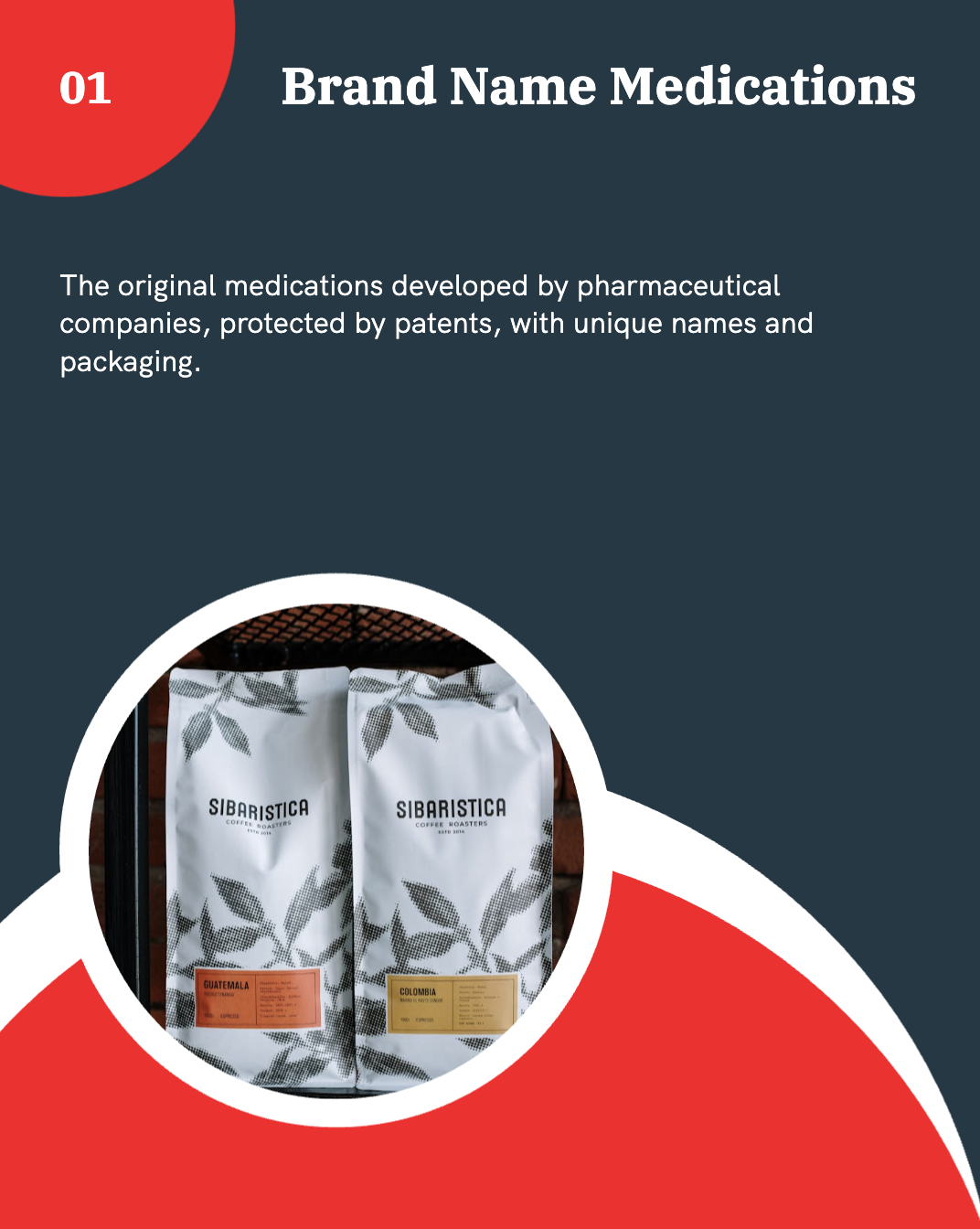
What Are Brand Name Medications?
Brand-name medications are the original products developed by pharmaceutical companies. These medications are protected by patents, granting exclusive rights to produce and sell them for a specific period.
Characteristics of Brand Name Medications
- Research and Development Costs. Brand-name drugs involve significant investment in research, clinical trials, and marketing.
- Distinctive Packaging and Naming. These drugs are marketed with unique names and often come in recognizable packaging.
- Patent Protection. A patent protects the formula for up to 20 years, preventing competitors from producing the same medication.
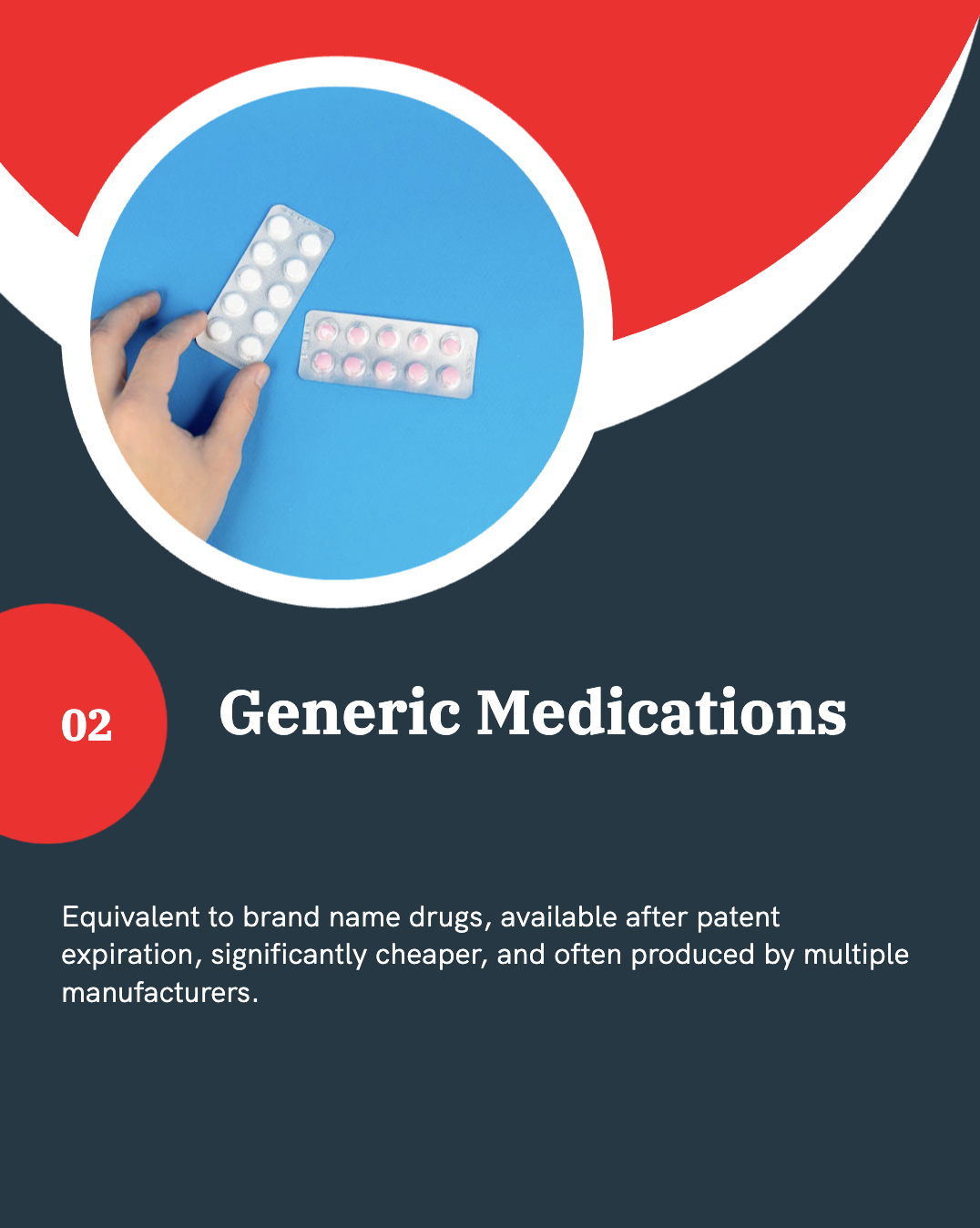
What Are Generic Medications?
Generic medications are equivalent of brand name drugs. They are introduced to the market after the original drug’s patent expires.
Characteristics of Generic Medications
- Cost-Effectiveness. Generics are significantly cheaper because they bypass initial research and marketing expenses.
- Bioequivalence. Generics must meet the same standards of safety, efficacy, and quality as their branded counterparts.
- Wider Availability. Multiple manufacturers often produce generics, increasing competition and accessibility.
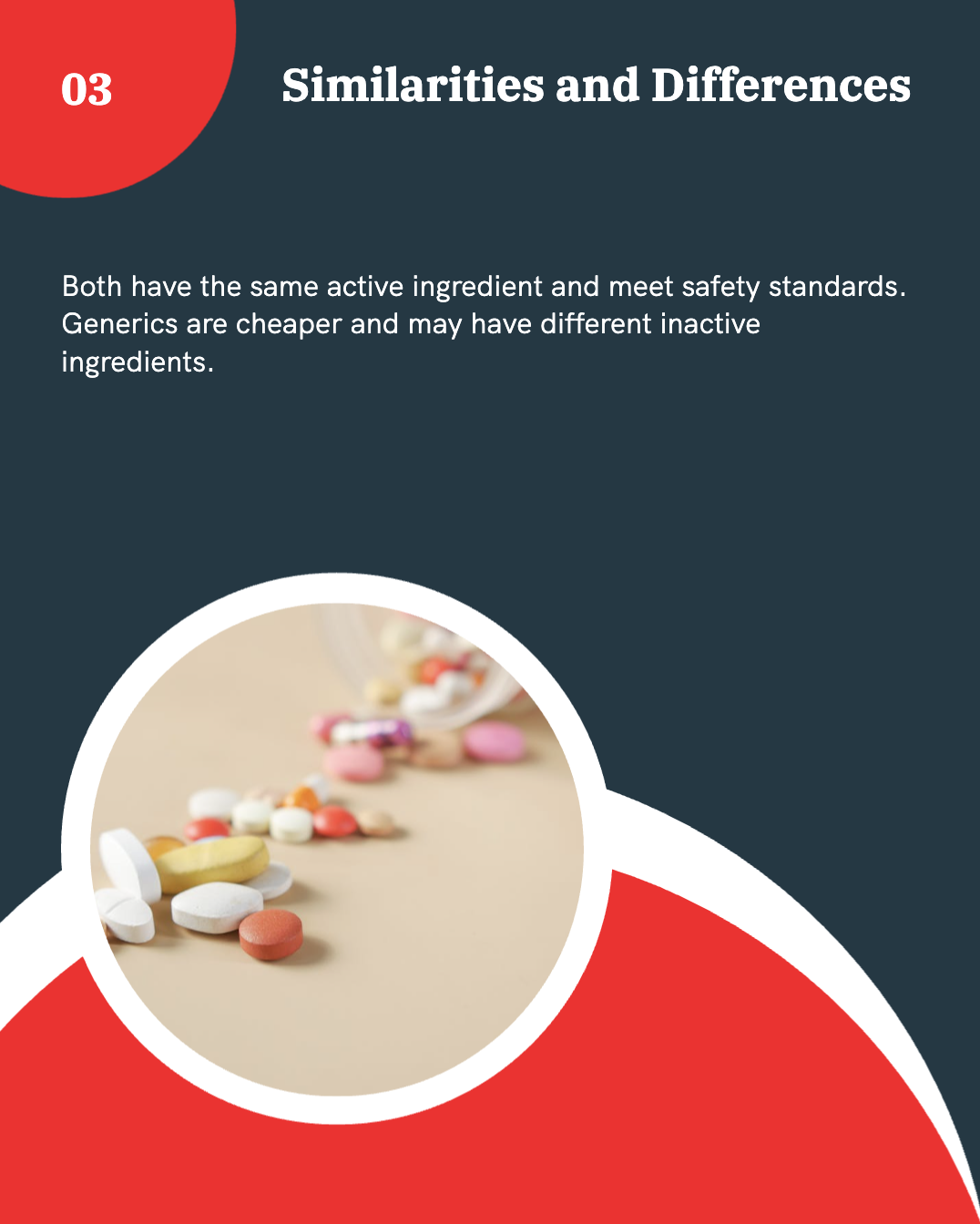
How Are Generics and Brand Names Similar?
Both generic and brand-name medications share essential attributes, including:
- Active Ingredients. Both contain the same active ingredients responsible for therapeutic effects.
- Safety and Efficacy Standards. The FDA or similar regulatory bodies approve both types after rigorous testing.
- Dosage Forms. They are available in identical strengths, forms, and administration methods.
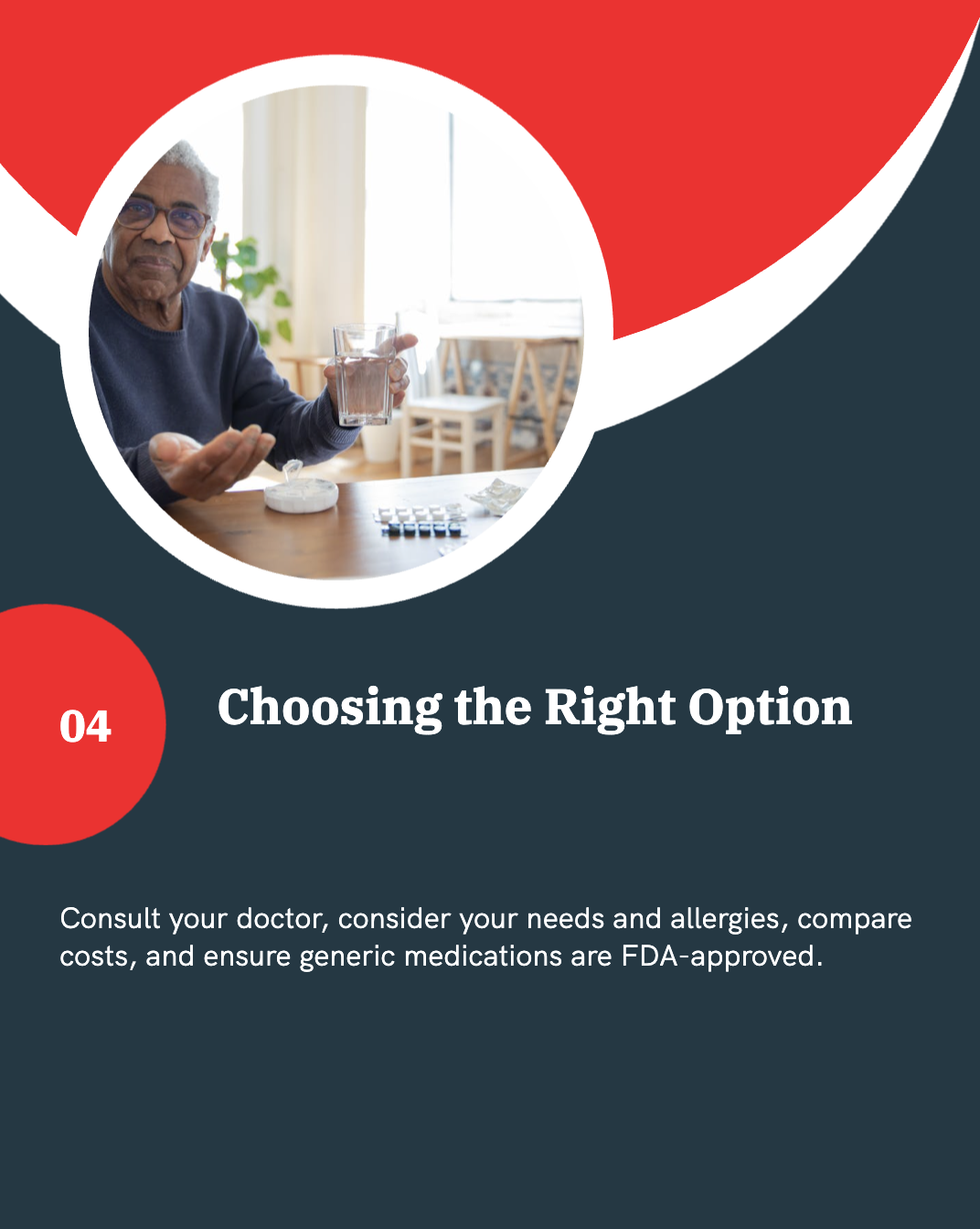
Key Differences Between Generic and Brand Name Medications
- Price. Generic medications cost 20-80% less than brand names due to lower production and marketing costs.
- Inactive Ingredients. While the active ingredient remains the same, fillers and binders may differ, potentially affecting tolerability in sensitive individuals.
- Appearance. Branding laws require generics to differ in color, shape, or size from the original product.
Advantages of Choosing Generic Medications
- Affordability. Generics make essential medications accessible to a broader population.
- Widespread Availability. With multiple manufacturers, supply disruptions are less common.
- Proven Safety. Generics undergo stringent regulatory checks before approval.
When to Opt for Brand Name Medications
- Allergic Reactions to Fillers. Some patients may experience sensitivities to inactive ingredients in generics.
- Consistency Concerns. Certain individuals or healthcare providers prefer the assurance of the original formula.
- Specialized Medications. Complex drugs like biologics may not have generic versions or equivalents yet.
The Role of Insurance in Medication Choices
Insurance companies often favor generics due to their lower costs. However, policies differ in covering brand-name drugs when no generic alternatives exist.
How to Decide Between Generic and Brand Name Medications
- Consult Your Healthcare Provider. Discuss your specific needs and any concerns regarding allergies or effectiveness.
- Evaluate Costs. Compare the price differences and check insurance coverage.
- Check FDA Approvals. Ensure the generic is approved as bioequivalent to the brand-name drug.
Common Myths About Generic Medications
- Generics Are Inferior. Generics meet the same quality standards as brand names.
- Generics Take Longer to Work. The active ingredients and absorption rates are nearly identical.
- Generics Are Not Safe. Regulatory bodies ensure safety through strict guidelines.
Quick Comparison of Generic vs. Brand Name Medications
| FEATURE |
BRAND-NAME MEDICATION |
GENERIC MEDICATION |
| Cost |
High |
Low |
| Active Ingredients |
Same |
Same |
| Inactive Ingredients |
Unique |
May vary |
| Packaging |
Branded |
Simplified |
| FDA Approval Process |
Rigurous |
Rigurous |
Making the Right Choice
IMAGE
Choosing between generic and brand-name medications depends on individual needs, preferences, and circumstances. Both options offer reliable, safe, and effective treatments. Collaborate with your healthcare provider to make an informed decision that aligns with your health and financial goals.
FAQs
- Are generic drugs as effective as brand-name drugs?
Yes, they are bioequivalent and must meet the same efficacy standards.
- Why are generic medications cheaper?
Generics skip the costly research and development phase.
- Can I switch between generic and brand-name medications?
Yes, but consult your healthcare provider before making changes.
- Do all brand-name drugs have generics?
Not always. Some newer or complex medications may still be under patent protection.
- How can I ensure the generic medication I’m taking is safe?
Look for regulatory approval and verify with your pharmacist.
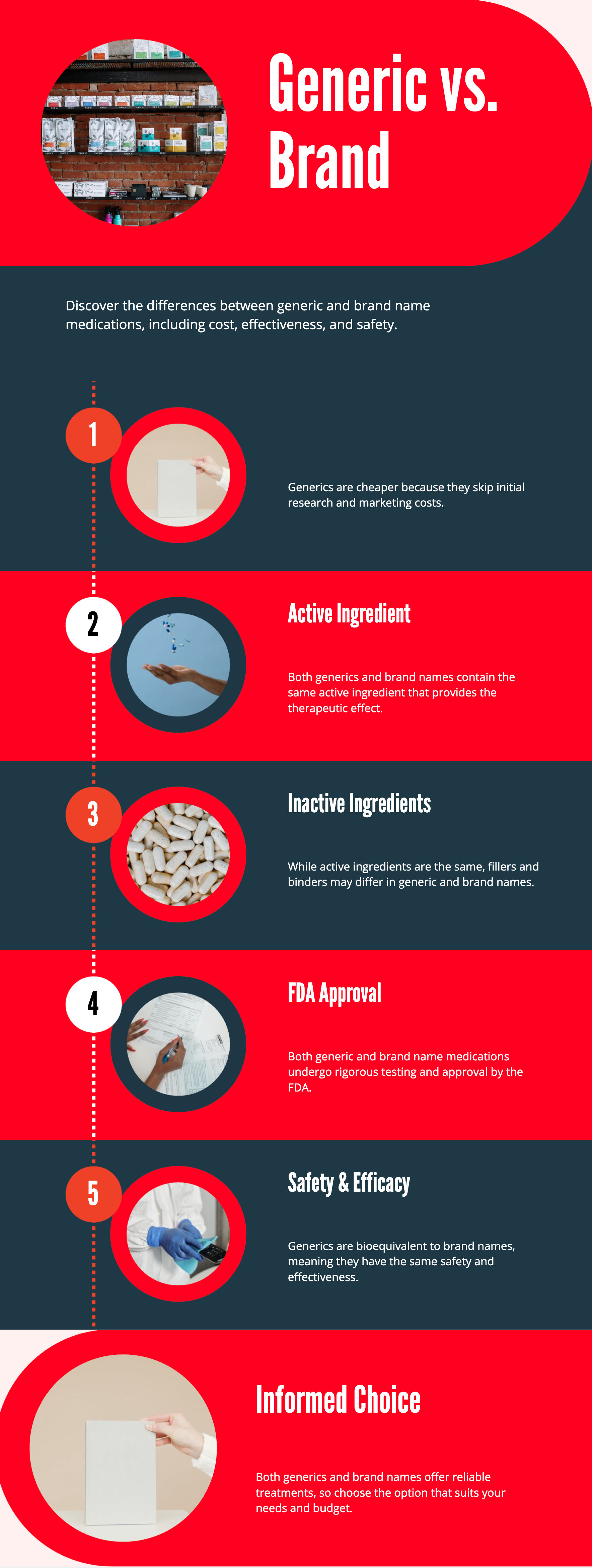 28.01.2025
28.01.2025




 28.01.2025
28.01.2025